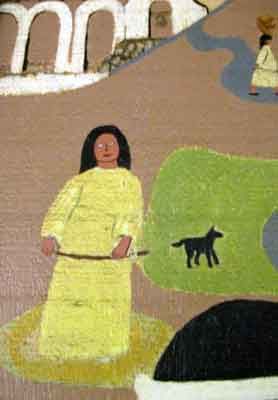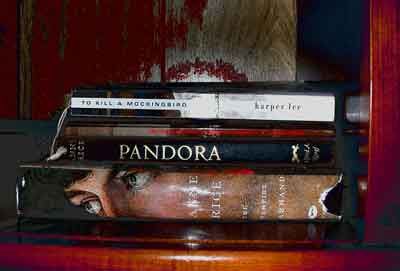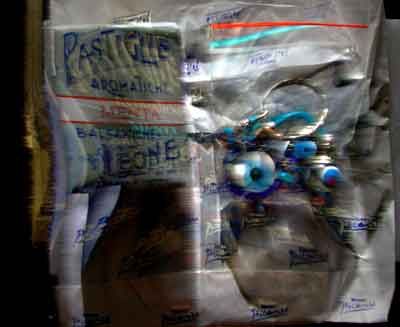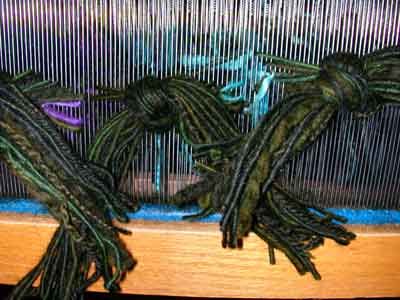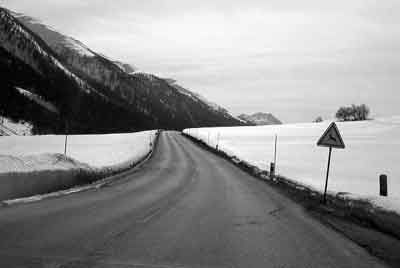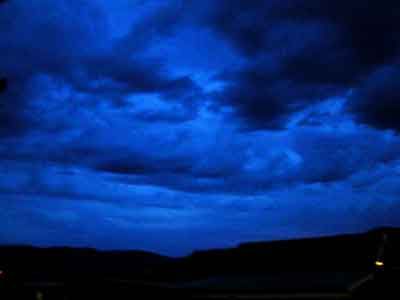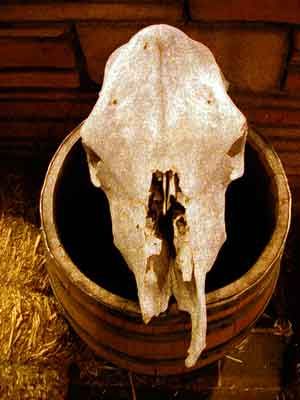Bittersweet song in C

From my earliest shape-gathering pools of recollection, there is a song that emerges. Whenever I hear it, I am drawn decidedly sadward. No matter what mood I may be in, this one song visits me like a country doctor who passes through a door, closes it, then takes my hand to tell me everything’s been done that can be done and now it’s in the hands of the good lord, or somesuch.
He then reassures me everything will be alright. Yet even with his practiced years of bedside ministering, he's unable to completely hide the truth. The truth of it is quite visible and lies but a few layers beneath his gentle face.
Whenever he tells me everything will be alright, I always take it to mean that no matter what happens—I’ll have to learn to live with it. There is a reason this country doctor suddenly materializes to tell me this each time that song plays: the door he appears from leads to my first sorrow. And that sorrow is one I’ve carried my whole life.
The first time I ever heard this bittersweet song in C, I was riding alone with my mother in the family car. I sensed there was something in her demeanor that was causing her stress so in an effort to cheer her up I reached toward the middle of the dashboard, twisted the big knob on the left, and music came out of the radio.
As we headed down Glenhope Drive towards the dairy or the supermarket, I was aware that whatever problems I might one day have in my young life, they would be small and inconsequential compared to what I was sensing in my mother that morning.
We had driven about a block or two when the song came on. It began in what I would one day learn and come to know instantly as a major key—a key usually reserved for happy, uplifting, and lighthearted songs. By the time it got to the last line of the opening chorus, a metaphorical change in weather suddenly fell over the song in the form of some minor key clouds. The song was You Are My Sunshine.
You are my sunshine, my only sunshine
You make me happy when skies are gray.
This initial part must have certainly made me feel hopeful and bouncy. This would surely cheer her up. I was driving with my mom on a gorgeous day and she was my sunshine and I was hers. No problems.
You’ll never know dear, how much I love you
Please don’t take my sunshine away.
All had proceeded along just fine until that last line. Who or what was going to take his sunshine away? It was his sunshine because a man was singing it. But why was his sunshine leaving? Was someone stealing it or was it going away on its own? Had it been a woman singing, the loss would have been hers and the tragedy might have been doubly compounded.
There is a product commercial currently using this song in a television advertising campaign. It begins with a couple of bars of toy piano and progresses for the remaining 25-seconds from there. It never reaches the inclement edges of the song, instead steering away from the dark stormgather to remain carefree in the bright sunshine.
Each time I hear the toy piano begin, I instantly recognize the song. But as the commercial fades out, I continue singing the lyrics in my head or aloud to myself as that sorrowed weather descends on me like a bird of gloom. And I find myself nearly on the verge of tears.
At first, I thought it was because I had recently been so deeply in love with a woman who was no longer in love with me. I naturally supposed this song was reminding me of her, smarting the heartache I’d carried for nearly three years.
So what then is the real reason that this song brings me such sorrow? It’s the life-long sorrow of my father leaving. And this is where it gets tricky. Emotions are generally a complicated amalgam of many things. Layered with a host of images, perceptions, and imaginings, emotion holds the ingredients of a recipe whose main component is subject to change each time it is felt. The chemicals that create these sensations within our brains follow a blueprint some millions of years in the making.
We then ascribe our own histories and experiences to them via the magnifying glass of our unique and singular memory. We then carry through our lifetimes a veritable pantryful of bitter soups marked with sorrowed labels we refer to as hard times as well as gleaming mason jars packed tight with the sweet preserves of the good times. Some of these cans and jars have expiration dates, some do not.
So it is with You Are My Sunshine.
It was, however, not my own sorrow I was sensing as we drove down Glenhope Drive listening to that song so long ago. It was my mother’s. Being only four years old, my sorrow was still well within the infancy of its personal understanding. I’d have a whole lifetime to come to know it intimately.
But my mother’s I could sense immediately and it was hers I wondered about that morning. As we trundled unseatbelted down the innocent mid-fifties street, I understood that, in spite of major keys and happy chords, the words of a song could overcast it with what I would eventually come to know as bittersweetness.
This differentiation would make much of my pantried soupstock easier to inventory and more palatable. Or not. Happy-sad equals easier to swallow. Sometimes; sometimes not. Sometimes bittersweet makes something far more tragic than the unsugared broth it is stirred from.
In this instance, hearing this song in a commercial does just that. It is an echo of the deepest kind. It comes from a place primordial in the prehistory of me. And it’s still painful. And bittersweet.
Perhaps it is because my father passed away a year ago at the age of seventy-two. Perhaps it is because I know the subsequent difficulties my mother endured at the prospect of raising two children alone in the 1950’s along with the difficulties and sacrifices she further shouldered and made in carrying four more children through the two more failed marriages that followed. Those were not easy times to be sure.
This bitterness is only sweetened by my not having been raised by my father and not having to endure all the alcoholic terror he conferred on the family of his dreadful second marriage. One of my half-sisters told me about some of it after his funeral, the other two refusing to attend.
In retrospect, this has made my impromptu eulogy at the service all the more difficult to recall in any kind of favorable light. Nevertheless, he was buried with the honors afforded all military veterans for his service in the aftermath of the Korean War.
It is often hoped that we are able to bury those painful parts of ourselves alongside the dead who may have authored them while we keep and cherish the joyous parts as we ceremoniously send them off into the great unknown. This is not always possible. Oftentimes we carry a lifetime of accumulated wounds and scars all the way to our own graves.
And the world wags on.
The rest of the lyrics to this simple song follow below. I will have to make my own recording of it some day. I’ll be sure to add some reverbish echo to the vocal and keep the nylon-string guitar raw and slightly distant in the background. I may even slow it down a bit to get the lilt out. And I will be sure to sing the final plaintive chorus a cappella for a definitive and lasting bittersweet effect.
You Are My Sunshine
You are my sunshine, my only sunshine
You make me happy when skies are gray
You'll never know dear, how much I love you
Please don't take my sunshine away.
The other night dear, as I lay sleeping
I dreamed I held you in my arms
But when I awoke, dear, I was mistaken
So I hung my head and I cried.
(Chorus)
I'll always love you and make you happy
If you will only say the same
But if you leave me and love another
You'll regret it all some day.
(Chorus)
You told me once, dear, you really loved me
And no one else could come between
But now you've left me to love another
You have shattered all my dreams.
(Chorus)
In all my dreams, dear, you seem to leave me
When I awake my poor heart pains
So when you come back and make me happy
I'll forgive you and take all the blame.
You are my sunshine, my only sunshine
You make me happy when skies are gray
You'll never know dear, how much I love you
Please don't take my sunshine away.
Written by Jimmie Davis & Charles Mitchell
Jimmie Davis was a country gospel singer
& former governor of Louisiana.
